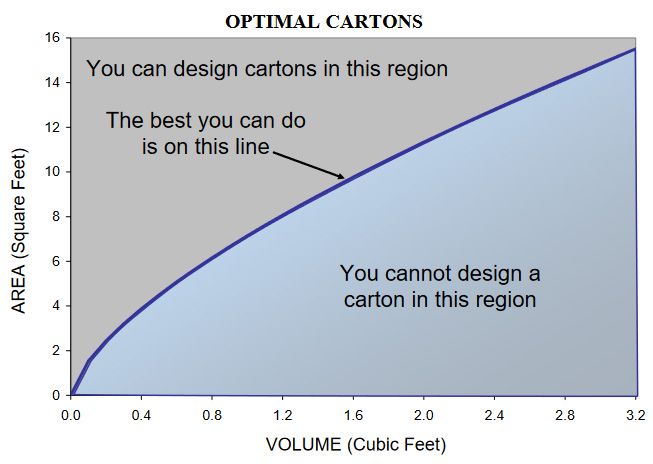CARTON REGIMES AND OPTIMAL CARTONS IN
PICK-AND-PACK OPERATIONS
By Terry Harris, Managing Partner, Chicago Consulting
The cartons shippers employ have a substantial impact on costs in their supply chains. Cartons impact transportation, corrugated material and void fill costs. These costs are particularly sensitive to carton design for Pick-and-Pack operations where orders and items are assigned to specific cartons selected from a “carton regime”.
Transportation Costs
The most important cost component impacted by a carton regime is transportation cost. It’s about ten times the costs of corrugated and void fill. The general objective is to design a carton regime that minimizes transportation cost. This is normally achieved by minimizing the number of cartons needed to ship a particular order.
Additional transportation cost savings can be achieved by exploiting carriers’ tariffs—normally parcel carriers’ tariffs. Techniques such as “pound shaving” and “stub balancing” can be used to find “sweet spots” in parcel carriers’ tariffs. Added savings can be achieved by accounting for parcel carriers’ new “dim-weight” tariffs (eliminating the 84” girth rule) as well as their rounding rules.
Material Costs
Generally the benefit of a carton is the volume it holds. On the other hand, the cost of a carton is related to the material it’s made from. This is proportional to the area of the corrugated material. Accordingly “optimal” cartons are cartons that maximize the volume per cost or, equivalently, the volume per area.
There is a natural limit, a maximum, to the volume a carton of a given area can have. Conversely there is a certain area needed for a carton with a specific volume. These optimal relationships are illustrated in the figure below:

Environment
Reducing corrugated material is good for the environment. Some have reported that for every pound of corrugated material eliminated, five pound of CO2 emissions are reduced.
For any specific carton, we’ll let you know how much material you can save or how much volume you could increase.
Please call us at (312) 346-5080 if interested.







